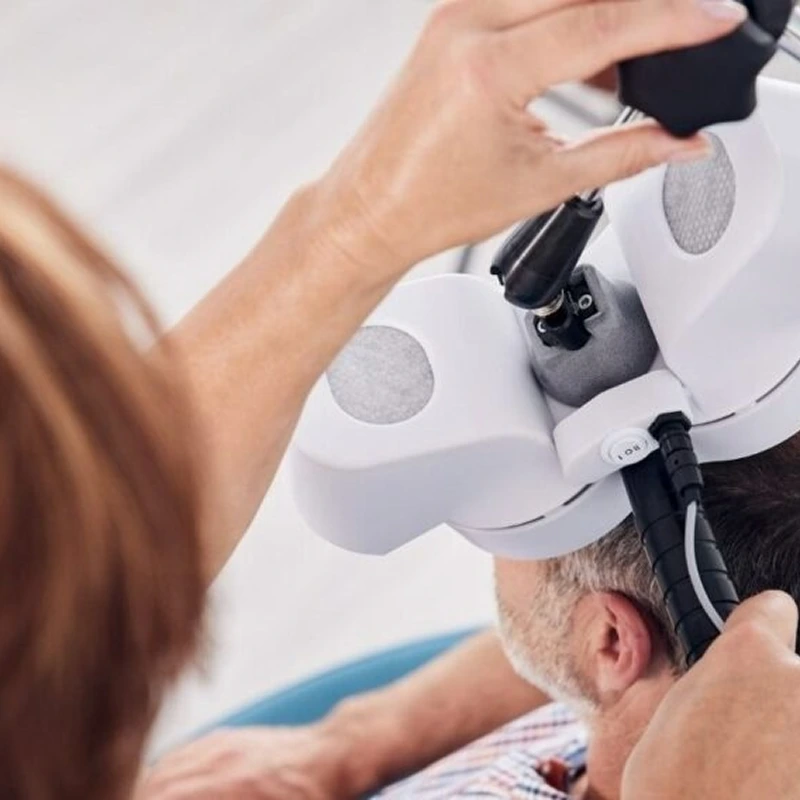Does TMS Hurt?

Transcranial magnetic stimulation (TMS) is gaining attention as a non-invasive therapy for depression, anxiety, obsessive-compulsive disorder (OCD), and other mental health conditions, especially among people seeking alternatives to medication.
Shock Therapy vs TMS Therapy

When it comes to treating severe depression and other mental health conditions, modern psychiatry offers several brain stimulation techniques with varying approaches and side effects.
TMS vs tDCS

TMS and tDCS are two of the most talked-about methods in modern neuroscience. While both technologies aim to modulate brain activity and have shown promising results in treating various psychiatric conditions, they work in fundamentally different ways and offer distinct advantages and limitations.
Is It Okay to Miss One Day of TMS?

If you’re undergoing transcranial magnetic stimulation (TMS) for major depression or another mental health condition, you might find yourself in a situation where you need to miss an appointment.
How Much Does TMS Cost in Colorado?

Considering transcranial magnetic stimulation (TMS) in Colorado? You’re not alone. This FDA-approved treatment has become increasingly popular for managing depression and other mental health conditions.
What Is The Success Rate of TMS?

Imagine a treatment that doesn’t rely on medication or invasive procedures yet offers hope for those who haven’t found relief through traditional therapy. Transcranial magnetic stimulation (TMS) has emerged as a beacon of hope for individuals struggling with major depression and other mental health conditions.
What is deep TMS?

When it comes to mental health treatments, innovative approaches are transforming the way we address conditions like depression, anxiety, and OCD.
How long does tms take to work?

If you’re considering transcranial magnetic stimulation (TMS) as a treatment option, one of the first questions you might have is how long it takes to see results.





My experience was life changing in the best way! I want to thank you Dr PERALTA and your lovely staff for all the help and support I received. -C.C.
The staff is so friendly. Dr. Peralta really listens to me and how I am progressing with the treatment and is excellent at explaining the process and answering my questions.
My experience was life changing in the best way! I want to thank you Dr PERALTA and your lovely staff for all the help and support I received. -C.C.
Amazing office, great setting easy location and the Dr was amazing asked great questions and came up with a plan to make me feel better.
My experience was life changing in the best way! I want to thank you Dr PERALTA and your lovely staff for all the help and support I received. -C.C.
Dr. Peralta is very concerned and helpful, she listens and problem solves with you. She also explains TMS in an understandable, relatable manner which also put you at ease while reassuring you. The whole staff at Mind Set is very positive and supportive. I'm really happy I found Dr. Peralta and Mind Set, they have made a true difference in my life.
My experience was life changing in the best way! I want to thank you Dr PERALTA and your lovely staff for all the help and support I received. -C.C.
Dr. Peralta and her staff have continuously impressed me and my wife. We respect and appreciate everything that they do for us and they can definitely do the same for you as long as you follow their advice, help, and protocols.
My experience was life changing in the best way! I want to thank you Dr PERALTA and your lovely staff for all the help and support I received. -C.C.
Everything was conducted professionally. An explanation was given as to what and why everything was being done as it was happening so I felt very comfortable about what was going to happen.